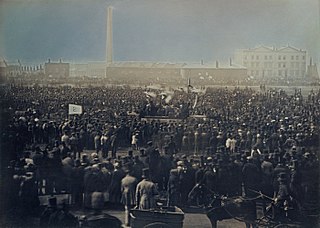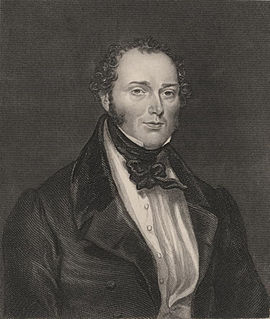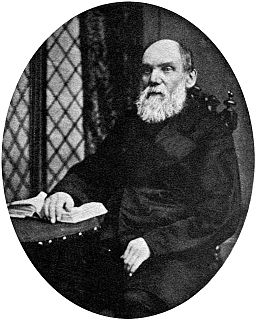Robert Meek Carter (1814–1882) was a British coal merchant and Liberal politician.

The Liberal Party was one of the two major parties in the United Kingdom with the opposing Conservative Party in the 19th and early 20th centuries. The party arose from an alliance of Whigs and free trade Peelites and Radicals favourable to the ideals of the American and French Revolutions in the 1850s. By the end of the 19th century, it had formed four governments under William Gladstone. Despite being divided over the issue of Irish Home Rule, the party returned to government in 1905 and then won a landslide victory in the following year's general election.
In 1850 he was elected to Leeds council as a Chartist, and was reelected in 1853. [1] In 1868 he was elected as a Member of Parliament for Leeds, a position he held until his resignation in 1876.

The City of Leeds ( ) is a local government district of West Yorkshire, England, governed by Leeds City Council, with the status of a city and metropolitan borough. The metropolitan district includes the administrative centre Leeds and the ten towns of Farsley, Garforth, Guiseley, Horsforth, Morley, Otley, Pudsey, Rothwell, Wetherby and Yeadon. It has a population of 784,800 (mid-2017 est.), making it technically the second largest city in England by population behind Birmingham; it is also the second largest metropolitan district by area behind Doncaster.

Chartism was a working-class movement for political reform in Britain that existed from 1838 to 1857. It took its name from the People's Charter of 1838 and was a national protest movement, with particular strongholds of support in Northern England, the East Midlands, the Staffordshire Potteries, the Black Country, and the South Wales Valleys. Support for the movement was at its highest in 1839, 1842, and 1848, when petitions signed by millions of working people were presented to the House of Commons. The strategy employed was to use the scale of support which these petitions and the accompanying mass meetings demonstrated to put pressure on politicians to concede manhood suffrage. Chartism thus relied on constitutional methods to secure its aims, though there were some who became involved in insurrectionary activities, notably in south Wales and in Yorkshire.

Leeds was a parliamentary borough covering the town of Leeds, in the West Riding of Yorkshire, England. It was represented in the House of Commons of the Parliament of the United Kingdom from 1832 to 1885.









